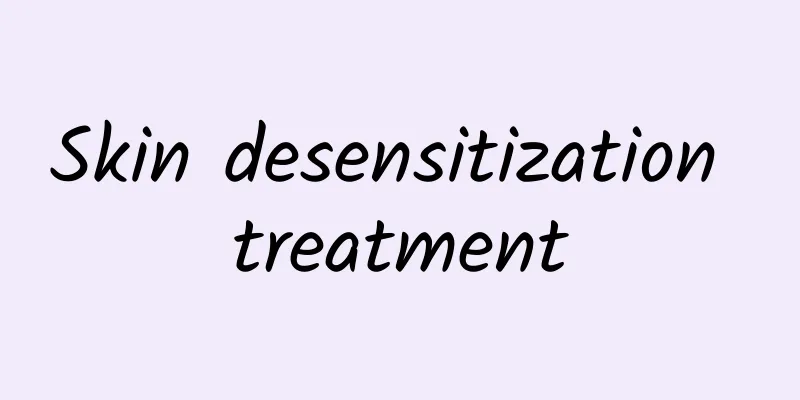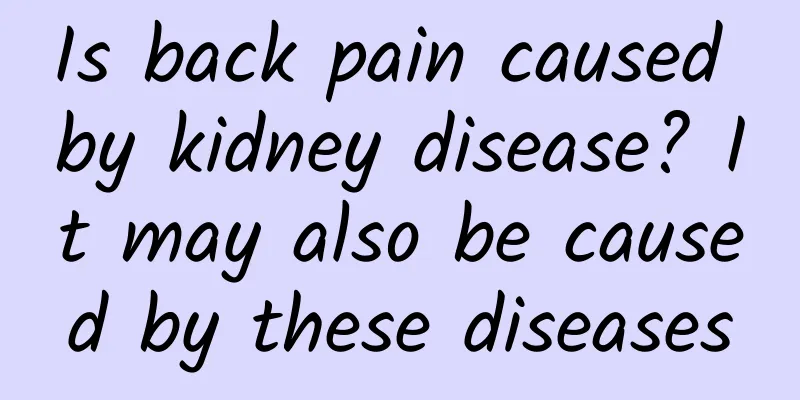Treatment of eczema

|
Eczema is a relatively common skin disease. Many people have suffered from eczema, even newborn babies. Eczema can occur in many parts of the human body and in various shapes. Generally, they grow symmetrically. Eczema will be very itchy when it occurs, and it is easy to recur. It is not easy to cure, especially when the seasons change and it is relatively humid. It is more troublesome. There are many causes of eczema, especially for people with allergies. They need to pay attention to all aspects in their daily lives. If they are not careful, it is easy to have recurrent attacks. Therefore, patients with eczema must avoid external stimulation, do not use too cold or too hot water to bathe or wash your face, etc., do not scratch the skin with your hands, especially the affected area, and try to reduce contact with animals or fur products. Let us learn about the causes and treatments of eczema. 1 Causes The causes of eczema are complex and are often the result of the interaction of internal and external factors. Internal factors such as chronic digestive system diseases, mental stress, insomnia, excessive fatigue, mood changes, endocrine disorders, infections, metabolic disorders, etc., and external factors such as living environment, climate change, food, etc. can all affect the occurrence of eczema. External stimuli such as sunlight, cold, dryness, heat, hot water washing, various animal furs, plants, cosmetics, soaps, artificial fibers, etc. can all induce it. It is a delayed allergic reaction caused by complex internal and external factors. Clinical manifestations 1. According to the manifestation of skin lesions, it is divided into three stages: acute, subacute and chronic. (1) Acute eczema lesions initially appear as numerous densely packed millet-sized papules, papulovesicles or small blisters with a flushed base that gradually merge into patches. Due to scratching, the papules, papulovesicles or blisters may show obvious punctate exudation and small erosive surfaces with unclear edges after being scratched. If secondary infection occurs, the inflammation will be more obvious and may form pustules, pus scabs, folliculitis, furuncles, etc. Conscious severe itching. It often occurs on the head, face, behind the ears, distal limbs, scrotum, and perianal area, and is often distributed symmetrically. (2) Subacute eczema After the inflammation of acute eczema is alleviated, the skin lesions are mainly small papules, scabs and scales, with only a small amount of papulovesicles and erosions. Still have severe itching. (3) Chronic eczema often turns into chronic eczema due to repeated attacks of acute or subacute eczema; it may also start as chronic eczema. The symptoms include thickening and infiltration of the skin in the affected area, brown-red or pigmentation, rough surface, scaling, or scabs due to scratching. Conscious itching. It is commonly found in the calves, hands, feet, elbows, popliteal fossa, vulva, and anus. The course of the disease is uncertain, prone to relapse, and difficult to heal. 2. According to the scope of skin lesions, it is divided into two categories: localized eczema and generalized eczema. (1) Localized eczema occurs only in specific parts of the body and can be named according to the part of the body, such as hand eczema, vulvar eczema, scrotal eczema, ear eczema, breast eczema, perianal eczema, and calf eczema. (2) Generalized eczema has multiple lesions that spread or scatter to multiple parts of the body. Such as nummular eczema, autosensitive eczema, and xerotic eczema. treat The causes of eczema are complex, and it is easy to recur even after improvement through treatment, making it difficult to cure. Because the clinical morphology and location are unique, the medication varies from person to person. 1. General prevention and control principles Look for possible triggers, such as work environment, living habits, diet, hobbies, thoughts and emotions, as well as the presence or absence of chronic lesions and internal organ diseases. 2. Internal therapy Choose antihistamines to relieve itching, and use two together or alternately if necessary. Generalized eczema can be treated with oral or injected corticosteroids, but they should not be used for a long time. 3. Topical therapy Choose appropriate dosage form and medicine according to the condition of skin lesions. For acute eczema, local washing and wet compresses with normal saline, 3% boric acid or 1:2000-1:10000 potassium permanganate solution, and calamine lotion for astringency and protection. Subacute and chronic eczema should be treated with appropriate glucocorticoid creams, tar preparations or immunomodulators, such as tacrolimus ointment and pimecrolimus ointment. Add antibiotic preparations for secondary infection. Patients with eczema should also pay attention to their diet. They should eat more light foods and avoid spicy foods, including chili peppers, strong tea, tobacco, alcohol, coffee, etc. In addition, do not take medicine at will. Be sure to take medicine under the guidance of a professional doctor. It is best not to use hormone drugs to apply to the skin to avoid skin irritation. |
<<: What causes sweating while sleeping?
Recommend
Early symptoms of rickets, do you have these symptoms?
Rickets is a disease caused by a lack of vitamin ...
What are the methods of TCM to nourish the kidney?
Modern people are under great pressure at work, s...
What is causing the bloating and pain on the right side of my lower abdomen?
Some people experience bloating and pain on the r...
How to get the cold air out of the body
I don’t know if you have ever had this feeling in...
What causes herpes on the glans penis?
Herpes on the male glans is what we often call ge...
What are the benefits of garlic soaked in white wine
Garlic soaked in white wine can help with weight ...
Can I drink tea while taking Chinese medicine?
Drinking tea is something that many people like n...
Electric Heating Salt Bag Sea Salt Coarse Salt Hot Compress Pack
Salt is indispensable in our lives. We use salt w...
How to detoxify your face?
Women have very high requirements for their skin....
Why do I have age spots on my hands?
Many people understand that as they age, age spot...
Can drinking less water replenish amniotic fluid?
The entire pregnancy period of a pregnant woman l...
What are the contraindications of moxibustion on Mingmen?
Moxibustion is very popular in life. This traditio...
What causes uterine fibroids? What are the common reasons?
When women reach a certain age, they are prone to...
What are the adverse reactions to hepatitis A vaccine?
The purpose of injecting the hepatitis A vaccine ...
Anal itching caused by external hemorrhoids
The form of hemorrhoids for every hemorrhoid pati...









